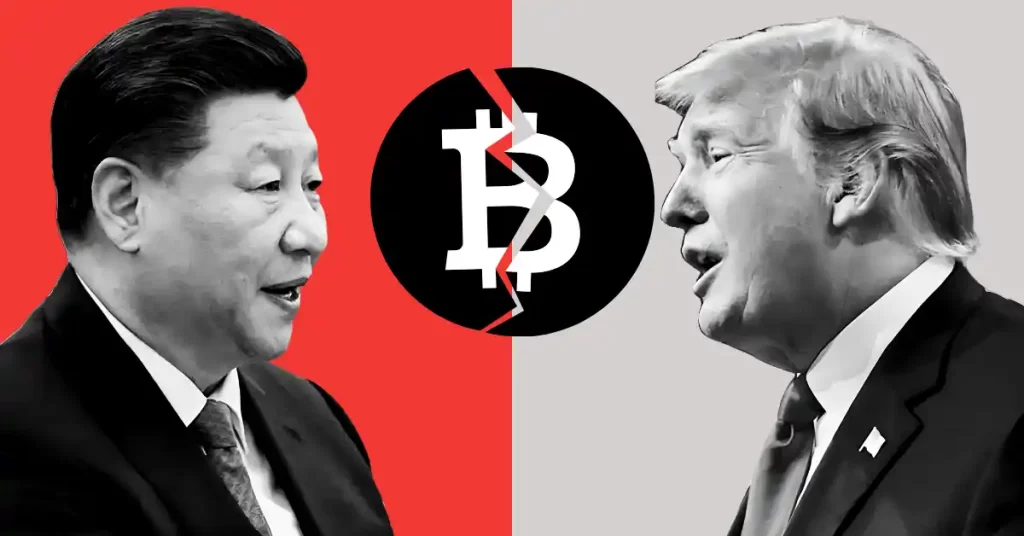ARTICLE AD BOX

The post Bitcoin Stays Strong as US-China Tariff Cooled Off appeared first on Coinpedia Fintech News
As trade tensions between the United States and China begin to cool down, cutting tariffs by over 100% on both sides, Bitcoin is quietly making bigger headlines. With recent progress in trade talks, traders and analysts are watching closely to see how Bitcoin reacts.
Is this digital asset becoming more than just a hedge? Or is it stepping into a much bigger role.
US-China Seal a Deal — Tariffs Slashed
After months of rising tensions, U.S. Treasury Secretary Scott Bessent announced on May 11 that the two countries have made “substantial progress” in trade talks. As part of the agreement, U.S. tariffs on most Chinese goods will drop from 145% to 30% for 90 days.
In response, China will cut its tariff on American imports from 125% to just 10%. Both sides called it a big step forward after years of back-and-forth conflict.
Meanwhile, Bessent said the talks were “productive,” while Chinese counterpart, Vice Premier He Lifeng, described it as “an important first step.”
But in the middle of all this diplomacy, the crypto world was watching something else, how Bitcoin would respond.
Is Bitcoin a Safe Haven?
In April, when global markets were shaken by new tariffs, Bitcoin held firm. In fact, it bounced back from $75,000 to nearly $95,000, a 27% rise in less than a month, while major stock indexes like the S&P 500 and Nasdaq fell. This led many to wonder if Bitcoin is now being treated like digital gold.
While, some analysts had suggested that countries might be turning to Bitcoin to dodge tariffs, which could explain its resilience.
However, popular crypto trader Daan Crypto believes the real test for Bitcoin starts now. As the trade tension between the U.S. and China has cooled off then something bigger is going on.
Institutional Money Continue It’s Inflow
Despite all the economic uncertainty and ongoing trade tensions, Bitcoin is showing strong signs of growth. On May 9, it recorded $401.2 million in inflows, while outflows were much lower at $79.8 million.
Leading the inflow charge BlackRock led the inflows with $356.2 million, followed by Fidelity with $45 million.
In just one week, Bitcoin ETFs saw $1 billion in total inflows, as Bitcoin climbed back to $105,783, rising 12%. This shows growing investor confidence, even as the U.S. and China work to ease trade tensions.
.png)
 1 month ago
4
1 month ago
4

 United States cuts tariffs on Chinese goods from 145% to 30% for 90 days.
United States cuts tariffs on Chinese goods from 145% to 30% for 90 days.







 English (US)
English (US)